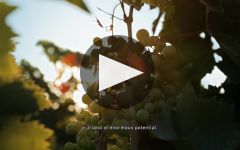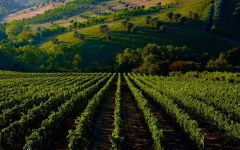Fantini Edizione Cinque Autoctoni 14th Release



Product Details
Your Rating
Somm Note
Winemaker Notes
Pairs well with rich first courses, red meat, semi-aged and aged cheese.
Blend: 33% Montepulciano, 30% Primitivo, 25% Sangiovese, 7% Negroamaro, 5% Malvasia







Fantini (by Farnese) wines are a reflection of the colors of Abruzzo, painting wonderful landscapes of taste and living for the love of the endless vineyards that are protected by Mount Majella. The vineyards are located on the hillside and stretch from the sea to a soaring 9,843 feet. The vineyards enjoy optimum exposure and an excellent microclimate which explains why the grapes grow so well in this area.
Fantini employs the most advanced technology as it is absolutely necessary to (enable the features of the grapes to be transferred intact to the bottle). It is Farnese’s belief that excessive enthusiasm while working in the vineyards is pointless if the winery is unable to maintain certain standards when bottling. In the winery’s words, “We believe we cannot produce a great wine without constant supervision on behalf of expert winemakers which is the reason why in each vintage six successful winemakers live in perfect harmony with the grapes that arrive at the winery and are turned into great wines.”

With hundreds of red grape varieties to choose from, winemakers have the freedom to create a virtually endless assortment of blended red wines. In many European regions, strict laws are in place determining the set of varieties that may be used, but in the New World, experimentation is permitted and encouraged resulting in a wide variety of red wine styles. Blending can be utilized to enhance balance or create complexity, lending different layers of flavors and aromas. For example, a red wine blend variety that creates a fruity and full-bodied wine would do well combined with one that is naturally high in acidity and tannins. Sometimes small amounts of a particular variety are added to boost color or aromatics. Blending can take place before or after fermentation, with the latter, more popular option giving more control to the winemaker over the final qualities of the wine.
How to Serve Red Wine
A common piece of advice is to serve red wine at “room temperature,” but this suggestion is imprecise. After all, room temperature in January is likely to be quite different than in August, even considering the possible effect of central heating and air conditioning systems. The proper temperature to aim for is 55° F to 60° F for lighter-bodied reds and 60° F to 65° F for fuller-bodied wines.
How Long Does Red Wine Last?
Once opened and re-corked, a bottle stored in a cool, dark environment (like your fridge) will stay fresh and nicely drinkable for a day or two. There are products available that can extend that period by a couple of days. As for unopened bottles, optimal storage means keeping them on their sides in a moderately humid environment at about 57° F. Red wines stored in this manner will stay good – and possibly improve – for anywhere from one year to multiple decades. Assessing how long to hold on to a bottle is a complicated science. If you are planning long-term storage of your reds, seek the advice of a wine professional.

A warm, Mediterranean vine-growing paradise, in Abruzzo, the distance from mountains to seaside is relatively short. The Apenniness, which run through the center of Italy, rise up on its western side while the Adriatic Sea defines its eastern border.
Wine composition tends to two varieties: Abruzzo’s red grape, Montepulciano and its white, Trebbiano. Montepulciano d’Abruzzo can come in a quaffable, rustic and fruity style that generally drinks best young. It is also capable of making a more serious style, where oak aging tames its purely wild fruit.
Trebbiano in Abruzzo also comes in a couple of varieties. Trebbiano Toscana makes a simple and fruity white. However when meticulously tended, the specific Trebbiano d’Abruzzo-based white wines can be complex and long-lived.
In the region’s efforts to focus on better sites and lower yields, vine acreage has decreased in recent years while quality has increased.
